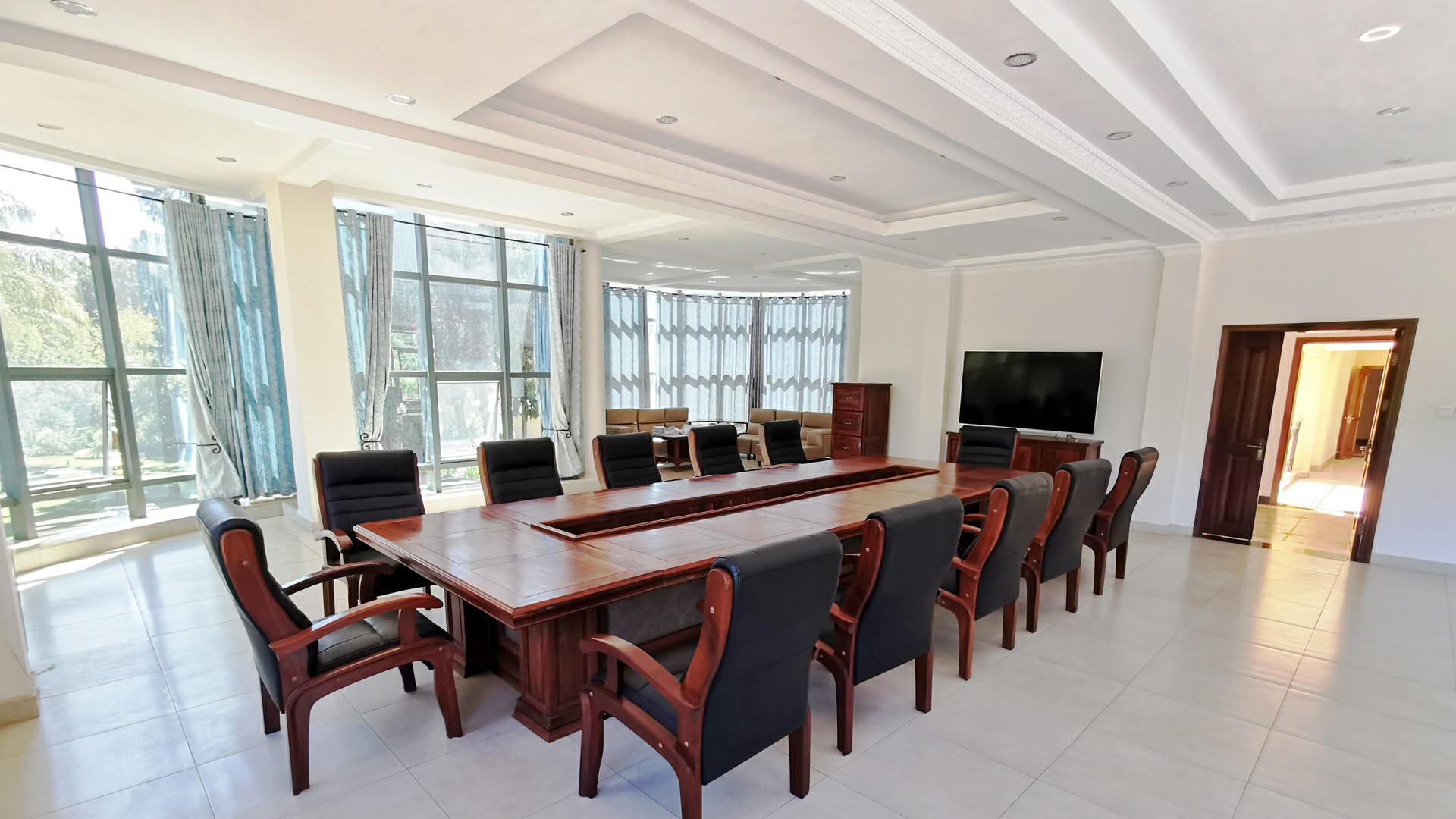新闻中心/ news center
当地新闻:vungu水坝将带来灌溉、清洁水源、创造就业并促进旅游业
Midlands Bureau
THE US$87 million Vungu Dam project in Silobela, Midlands province is set to present locals with numerous benefits, ranging from irrigation, clean water supply, employment creation and a boost in tourism.
The project is on course with contractors racing against time to ensure the project is completed within the projected timeframe as the Second Republic steps up rural industrialisation through massive infrastructural development projects that leave no one and no place behind.
Upon completion, Vungu Dam will irrigate 1 200 hectares from 118 million cubic metres of water, provide potable water to a local business centre and surrounding communities as well as create jobs for local communities including fisheries project.
It will have a mini hydro-power plant.
The construction of the major dam comes at a time when the Second Republic is constructing dams across the country to address water challenges and also climate-proof the agricultural sector which remains the mainstay of the country’s economy.
Through the provision of adequate water supplies — President Mnangagwa has taken it upon himself to make sure that Zimbabwe becomes food secure.
The dam, which is part of the Second Republic’s high-impact projects, is set to be completed in a record three years.
The scope of the work ranges from the construction of the dam, which has a length of 2,6 km, a height of 30 metres, and a 120-metre spillway.
Three irrigation sites, Ntobe (788ha), Sikunyana (367 ha) and Nyakwati (345ha) in Silobela district will draw water from the dam.
In an interview, Silobela legislator Cde Jonah Nyevera said as a constituency they were excited about the dam project.
“We are very delighted as a constituency for this milestone in our area. We are going to establish a mini-town here at Crossroads. The dam is being built across the Vungu River and will facilitate irrigation, potable water, and water for industrial use in Silobela,” he said.
“The dam will also facilitate water sports, including fishing among others, and this will also boost our tourism sector as a country.”
Cde Nyevera said the irrigation areas downstream have already been identified.
“We have three irrigation areas to be irrigated by water from this dam, and they are Ntobe area where we have 788 hectares of land that will be irrigated, Sikunyana where we have 367 hectares and Nyakwati which has 345 hectares to be irrigated,” he said.
“We are going to create a greenbelt in this district and the benefits will spread to the national level.”
Silobela businessman, Mr Clever Dube lauded Government for the project, saying it will create jobs for locals.
“Irrigation is the dam’s primary purpose. Additionally, Silobela Business Centre will have access to water for potable and industrial uses. Tourism in the area will likely rise as a result of the project,” he said.
“This is a massive project for Silobela. Our area is very dry and as such we look forward to having gardens which will help us with income.”
Ms Memory Nyoni said: We are already witnessing the shaping of Vision 2030. We also hear that there will be clean water to be generated here, and this is commendable.”
Midlands Provincial Affairs and Devolution Minister Owen Ncube visited the dam recently to check on its progress.
He said the project is one of the many being undertaken by the Second Republic in line with the inclusive development agenda.
“The Second Republic is steadfast in guaranteeing development reaches every corner of our beloved country. Projects such as Vungu projects which had remained idle for long are now being resuscitated,” said Minister Ncube.
The construction of 12 large dams nationally is being accelerated to put at least 350 000 hectares under irrigation by 2025 as the need to boost crop production grows.
The rolling out of dam construction countrywide will boost agricultural production, provide potable water, and mini-hydro-power projects as the Second Republic seeks to revolutionise agriculture, especially for smallholder farmers.
The Second Republic is constructing dams across the country to address water challenges and also climate-proof the agricultural sector which remains the mainstay of the country’s economy.
The Government, through the Zimbabwe National Water Authority (Zinwa), has a target to build 12 high-impact dams in line with the Second Republic’s vision to transform Zimbabwe into an upper middle-income economy by 2030.
Lake Gwayi-Shangani, which is the flagship dam, is progressing well and will hold 691 million cubic litres of water to facilitate irrigation in the surrounding areas when completed as well as give Bulawayo adequate water for expansion.
上一条:当地新闻:孔兹大坝已完工50%
下一条:当地新闻:森瓦大坝质量至上

